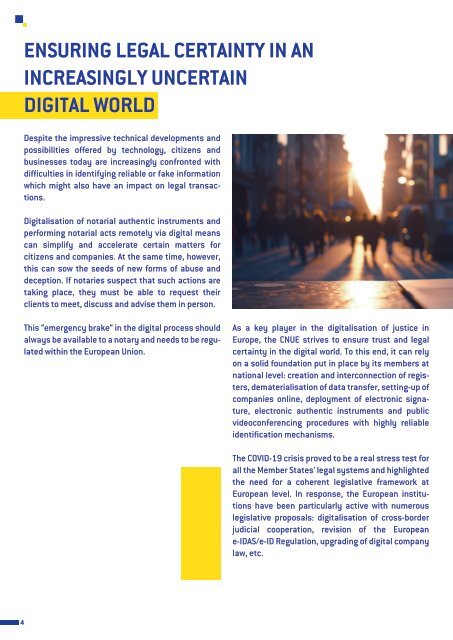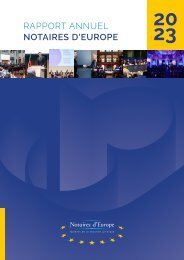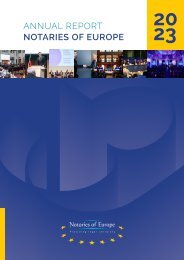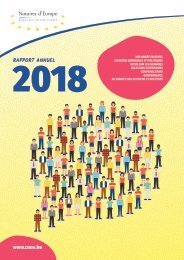Manifeste 2024 European Elections
Manifeste 2024 European Elections
Manifeste 2024 European Elections
You also want an ePaper? Increase the reach of your titles
YUMPU automatically turns print PDFs into web optimized ePapers that Google loves.
ENSURING LEGAL CERTAINTY IN AN<br />
INCREASINGLY UNCERTAIN<br />
DIGITAL WORLD<br />
Despite the impressive technical developments and<br />
possibilities offered by technology, citizens and<br />
businesses today are increasingly confronted with<br />
difficulties in identifying reliable or fake information<br />
which might also have an impact on legal transactions.<br />
Digitalisation of notarial authentic instruments and<br />
performing notarial acts remotely via digital means<br />
can simplify and accelerate certain matters for<br />
citizens and companies. At the same time, however,<br />
this can sow the seeds of new forms of abuse and<br />
deception. If notaries suspect that such actions are<br />
taking place, they must be able to request their<br />
clients to meet, discuss and advise them in person.<br />
This “emergency brake“ in the digital process should<br />
always be available to a notary and needs to be regulated<br />
within the <strong>European</strong> Union.<br />
As a key player in the digitalisation of justice in<br />
Europe, the CNUE strives to ensure trust and legal<br />
certainty in the digital world. To this end, it can rely<br />
on a solid foundation put in place by its members at<br />
national level: creation and interconnection of registers,<br />
dematerialisation of data transfer, setting-up of<br />
companies online, deployment of electronic signature,<br />
electronic authentic instruments and public<br />
videoconferencing procedures with highly reliable<br />
identification mechanisms.<br />
The COVID-19 crisis proved to be a real stress test for<br />
all the Member States' legal systems and highlighted<br />
the need for a coherent legislative framework at<br />
<strong>European</strong> level. In response, the <strong>European</strong> institutions<br />
have been particularly active with numerous<br />
legislative proposals: digitalisation of cross-border<br />
judicial cooperation, revision of the <strong>European</strong><br />
e-IDAS/e-ID Regulation, upgrading of digital company<br />
law, etc.<br />
4
















